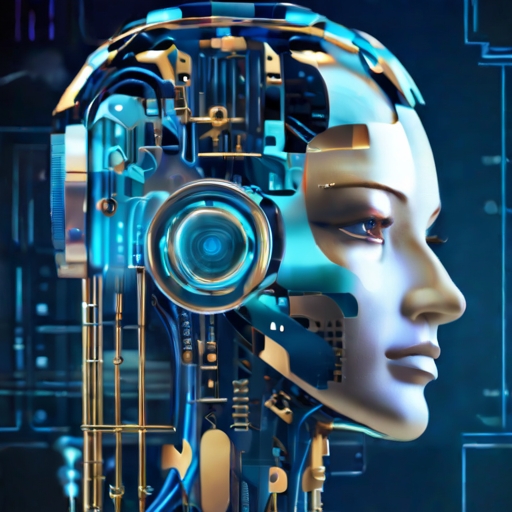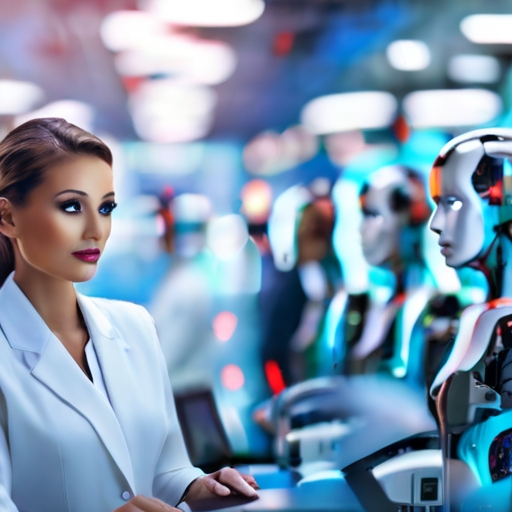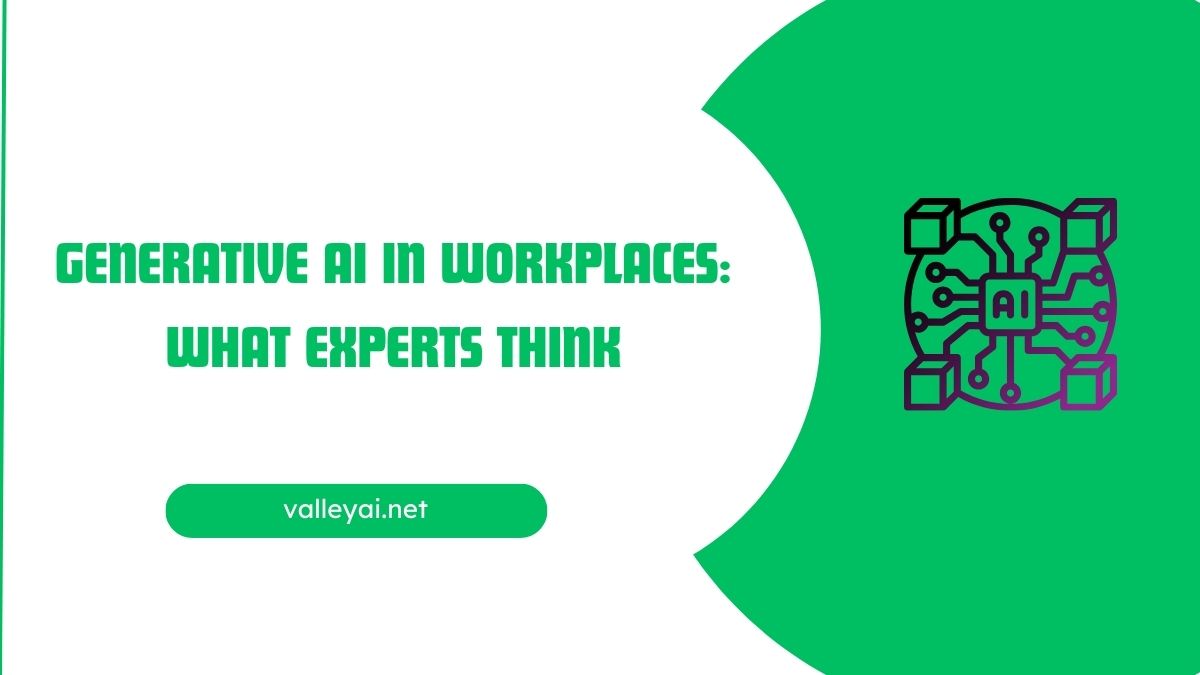In today’s rapidly evolving technological landscape, the integration of artificial intelligence (AI) in workplaces has become a common concern. The notion of AI replacing jobs and its potential consequences has sparked extensive discussions and debates.
However, as we look towards the future, it is essential to recognize that the year 2024 holds exciting possibilities for generative AI in workplaces.
Generative AI in workplace settings is poised to revolutionize the way we work, offering unprecedented opportunities for innovation and efficiency.
This blog aims to delve into the subject of generative AI and its profound impact on workplaces. Let us listen to the experts and see what they have to anticipate regarding the role of generative AI in workplace. We’ll also briefly look at the pros and cons of our reliance on artificial intelligence in the workplaces.
So, let’s embark on this exciting journey and uncover the transformative potential of generative AI in the workplace.
What Experts Say
Let’s explore what experts generally think about the role and future of generative AI in workplace settings.
Expect a Role Reversal: Humans Assisting Machines, Not Vice Versa
Experts predict a significant shift in the relationship between humans and machines. Instead of machines assisting humans, the roles will reverse, with humans taking on the responsibility of assisting machines.
This change is anticipated to occur in the next decade. According to AI researchers and experts, we will see a paradigm shift from machines assisting humans to humans assisting machines.
This transformation is driven by the advancement of generative AI technology and algorithms. As humans leverage their unique cognitive abilities to support and enhance machine performance, job roles and demanded skills will evolve.
The shift also presents opportunities for innovation and productivity. This reversal of roles extends beyond the workplace and highlights the need for ethical frameworks.
AI Is More Of A Collaborative Tool Than Replacement
Experts believe AI will become an integral part of the modern workplace, acting as a collaborative tool rather than a replacement for human workers. With its ability to analyze vast amounts of data and identify patterns, using artificial intelligence in the workplace can assist employees in making informed decisions and optimizing their workflow.
AI In Workplaces Promises Enhanced Efficiency and Productivity
Generative AI technologies are expected to significantly enhance workplace efficiency and productivity. By automating repetitive tasks, AI frees up valuable time for employees to focus on higher-value activities. This shift allows workers to utilize their skills and creativity more effectively, leading to increased innovation and improved outcomes.
AI Augmenting Human Intelligence
Another viewpoint shared by experts is that AI serves as a tool to augment human intelligence rather than replace it. As AI systems continuously learn from data and improve their capabilities, they can provide valuable insights and suggestions to employees. This collaboration between humans and AI ensures better decision-making and problem-solving, leading to enhanced overall performance.
Opportunities for Skill Development
Experts also emphasize the potential for AI to create new opportunities for skill development. As AI takes over repetitive and mundane tasks, employees can concentrate on acquiring new skills that align with the evolving demands of the workplace. This shift can empower workers to adapt to changing technologies and excel in areas that require creative thinking and emotional intelligence.
Ethical Considerations and Human-Centric AI

Many experts stress the importance of incorporating ethics and a human-centric approach into AI development and implementation. They advocate for responsible AI practices that prioritize transparency, fairness, and accountability. By considering the ethical implications of using generative AI in workplaces, experts aim to ensure that workplaces remain inclusive, unbiased, and focused on the well-being of humans.
Data-Driven Decision Making
Experts recognize that AI has the potential to revolutionize decision-making processes within workplaces. By analyzing vast amounts of data in real-time, AI systems can offer valuable insights and predictions, enabling businesses to make data-driven decisions. This empowers organizations to identify trends, optimize strategies, and stay ahead of the competition.
Personalization and Customization
AI-powered systems can personalize user experiences and customize services based on individual preferences and needs. Experts believe that this level of personalization can significantly improve customer satisfaction and overall employee productivity. With AI’s ability to understand and adapt to user behavior, workplaces can deliver tailored experiences that cater to specific requirements.
Automation of Repetitive Tasks
Automation plays a crucial role in workplace optimization, and experts recognize AI’s potential to automate repetitive tasks. By implementing AI systems, organizations can reduce the time and effort spent on routine tasks, allowing employees to focus on more complex and strategic activities. This automation not only increases efficiency but also reduces the risk of errors and improves overall accuracy.
Impact on Job Roles and Workforce

Experts acknowledge that AI will reshape job roles and necessitate a shift in the workforce’s skill set. While AI may replace certain job functions, it also creates new roles that require expertise in managing and collaborating with AI systems. Experts suggest that upskilling and reskilling programs will be crucial to equip employees with the necessary skills to adapt to these changes and thrive in the AI-powered workplace.
Continuous Learning and Adaptability
One key aspect highlighted by experts is the importance of continuous learning and adaptability in the AI-driven workplace. As AI technology evolves, employees need to embrace a growth mindset and be open to acquiring new knowledge and skills. Continuous learning ensures that employees remain relevant and capable of leveraging AI tools effectively, enabling them to stay competitive in the ever-changing job market.
Generative AI In Workplace Settings: Pros and Cons
Let us take a look at some advantages and disadvantages of generative AI in the workplace:
Pros:
- Increased productivity: Generative AI can automate repetitive tasks, allowing employees to focus on more strategic and creative work.
- Enhanced creativity: AI-generated content can inspire new ideas and help with brainstorming sessions.
- Improved customer service: AI-powered chatbots can provide instant and accurate responses to customer inquiries, improving support and reducing response times.
- Data-driven decision-making: Generative AI can analyze vast amounts of data and provide actionable insights for better decision-making.
- Personalization: AI algorithms can create personalized recommendations and experiences for employees and customers.
Cons:
- Ethical concerns: There are ethical considerations surrounding the use and role of generative AI in workplace, such as data privacy, bias, and potential job displacement.
- Reliance on technology: Over-reliance on AI can lead to decreased human skills and dependency on technology, making it challenging to deal with situations outside of AI’s capabilities.
- Lack of human touch: AI-generated content may lack the emotional and empathetic elements that are important for certain interactions.
- Cost: High costs are one of the biggest disadvantages of generative AI in the workplace, especially for small businesses.
- Security risks: systems can be vulnerable to hacking and cyberattacks, which may compromise sensitive data.
By considering these points, we gain a better understanding of how experts perceive the impact of artificial intelligence in the workplaces. From data-driven decision-making to personalized experiences and automation, AI has the potential to transform the way businesses function and employees work. Embracing this technology and adapting to its integration will be crucial for organizations to thrive in the future.
- Understanding the Landscape of Cloud Vulnerability Management - March 25, 2024
- Quality Assurance Strategies for Startups: Ensuring Software Reliability - March 5, 2024
- Working of NLP to Improve Copywriting in AI Paraphrasing Tool - February 28, 2024

